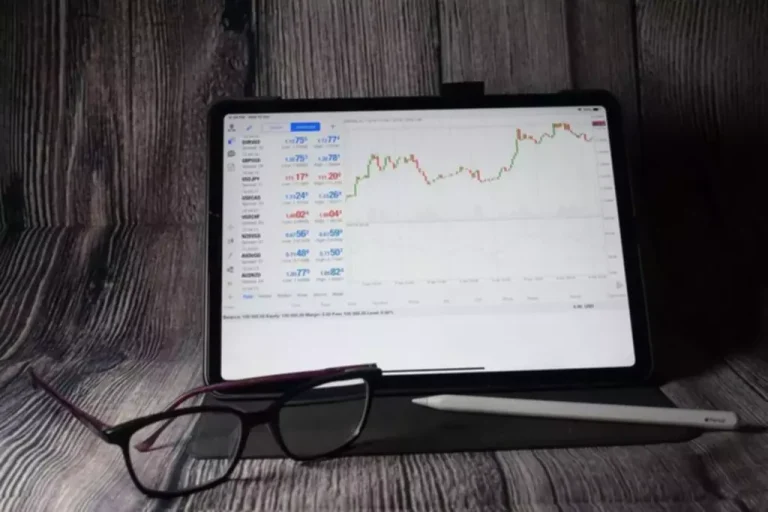They also present very important property planning instruments to assist clients reach their monetary targets faster. Independent broker-dealers are small businesses that supply a extra complete vary of funding options from outside sources. A wirehouse is a term used to explain a full-service broker-dealer, ranging from small brokerages to leading international institutions. The two main forms of broker-dealers are wirehouse and impartial broker-dealers. Since most inventory brokerages operate as agents and principals, the term broker-dealer is used to define them in phrases of U.S. securities legal guidelines.
A dealer executes on behalf of shoppers; he is often a full-service or discount broker who is simply engaged in buying and promoting securities. A vendor buys and sells securities by itself, but some dealers identified as major dealers facilitate trades on behalf of the U.S. In finance, broker-dealers are essential intermediaries between traders and the securities market. They facilitate transactions, present investment advice, and supply numerous financial companies. With a full-service broker-dealer, you’ll be able to anticipate personalized advice and steerage from skilled professionals.

“Broker” and “supplier” are U.S. regulatory phrases and, as is often the case with legal phrases, they aren’t very intuitive to many individuals. While the words are sometimes seen together, they actually represent two completely different entities. To the regulators, this implies the entity through which buyers hold a brokerage account.
Brokers
Someone on our staff will join you with a financial skilled in our community holding the proper designation and expertise. Ask a query about your monetary scenario offering as much detail as potential. Our mission is to empower readers with essentially the most factual and dependable monetary data attainable to help them make knowledgeable types of broker dealers decisions for his or her particular person wants. Our writing and editorial employees are a group of consultants holding advanced financial designations and have written for most main financial media publications. Our work has been immediately cited by organizations together with Entrepreneur, Business Insider, Investopedia, Forbes, CNBC, and tons of others.

FINRA, or the Financial Industry Regulatory Authority, oversees broker-dealers in the us, defending traders and making certain secure and fair practices. A broker-dealer must disclose in writing that they are acting as a dealer on this scenario. We make money from affiliate relationships with companies that we personally believe in. This signifies that, at no extra cost to you, we might get paid when you click on on a hyperlink.
Great! Hit “submit” And An Advisor Will Ship You The Information Shortly
Terms like “alpha,” “beta,” and “Sharpe ratio” don’t exactly roll off the tongue, nor does their use by industry insiders serve to carry the veil and make things less opaque. For example, a broker can buy 50 shares from firm ABC for $100 every and resell them in secondary markets for $101 per share and a revenue of $1 per share. Note that it is an imaginary example because $1 is a significant quantity, and $0.15 is a fairly enough spread per share.
- Broker-dealers which would possibly be tied on to investment banking operations additionally engage in the underwriting of securities offerings.
- Technically, the one who takes our calls (to purchase or sell) is a registered representative of a broker-dealer, though you in all probability simply check with the individual as your dealer.
- You advisor recommends you buy a stock, but is he doing this as your advisor who works in your greatest interest or as your broker?
- Whichever career you choose, be prepared to work in a fast-paced workplace.
- Broker-dealers also have a responsibility to the issuer and they could additionally be obligated to distribute an agreed-upon number of shares.
Still, it is wise to make clear any misconceptions about discount brokers earlier than hiring one. Broker-dealers make their money from brokerage commissions and costs, like spread, charging a fraction of every commerce they execute, annual account administration charges, and so on. These fees could be decided as mounted fees or a share of each transaction. Broker-dealers are monetary market participants and entities who commerce for his or her purchasers using their or other’s securities (brokers) and trade for their very own accounts to benefit their firm (dealers).
On the opposite hand, an funding adviser’s major role is to supply customized funding recommendation. They work carefully with shoppers to develop funding strategies, handle portfolios, and provide ongoing financial guidance. They analyze market tendencies, consider corporations and industries, and supply suggestions based mostly on their research and evaluation. A broker-dealer and an investment advisor are each monetary professionals involved in the securities market or business, but they differ in a number of key features.
Ria Vs Broker-dealer
It will also test your understanding of laws and prohibited practices. To turn out to be a broker-dealer, an individual or monetary entity must register with SEC and be a part of any SRO and SIPC. Further, they must comply with state mandates and meet eligibility requirements. RIAs charge clients a proportion of their belongings beneath their management, whereas others bill a flat or hourly rate for the recommendation they supply. Some expenses are a set quantity per transaction, a portion of total revenues, or a combination of both.
They usually have their very own line of products they offer their clients and revenue from. Broker-dealer corporations should register with a variety of regulatory bodies and to be able to function legally. Companies like Charles Schwab additionally own banks and different subsidiaries to allow https://www.xcritical.com/ them to offer all-encompassing service to do-it-yourself buyers. Broker-dealers can’t cost both commissions and a markup on the same transaction. They can act either of their capability, as a broker/agency or as a dealer/principal, however they cannot simultaneously act as both.
Traders, then again, tend to work for a big investment administration agency, an trade or a financial institution, and they buy and sell securities on behalf of the assets managed by that agency. If you’re having trouble deciding between a career as a Wall Street dealer or stockbroker, you’ll need to absolutely understand the pros and cos of each. Both professions involve shopping for and selling securities, however they have some variations to contemplate. In this article, we’ll look at how the job of a Wall Street dealer compares to a stockbroker, so you’ll find a way to determine which is greatest for you. The primary difference between brokers and sellers is that brokers commerce securities for clients, while sellers commerce for themselves. In order to become registered, broker-dealers must meet sure financial requirements and move a qualifying examination.
However, they have to still comply with all regulations and ensure the suitability of their offerings for his or her clients. Brokerage firms provide tools and assets that enable buyers to make trades and search financial recommendation. A broker-dealer could provide other services, corresponding to underwriting, market making, and custody.
11 Financial might only transact business in those states during which it’s registered, or qualifies for an exemption or exclusion from registration requirements. eleven Financial’s web site is restricted to the dissemination of common information pertaining to its advisory companies, together with entry to extra investment-related info, publications, and hyperlinks. A broker-dealer could be firms, banks, or individuals who usually purchase securities and then ultimately promote them at a higher worth to a different investor. Independent broker-dealers perform the identical duties as full-service brokerage firms without being subject to the restrictions and necessities of a serious Wall Street company.
Their transaction expenses are usually flat, ranging from underneath $5 to above $30 per trade. Although they may suggest merchandise for which they’ll receive a fee, traders should still approve such offers. A wirehouse dealer is an employed representative of wirehouses whose activities are ruled by their employer. This web site is using a security service to guard itself from on-line attacks. There are a number of actions that might trigger this block together with submitting a sure word or phrase, a SQL command or malformed information.

These intermediaries play a vital position in sustaining liquidity and effectivity within the capital markets. Working with an adviser may come with potential downsides similar to cost of charges (which will scale back returns). There are no guarantees that working with an adviser will yield optimistic returns.
Although many broker-dealers are “impartial” corporations solely concerned in broker-dealer companies, many others are enterprise models or subsidiaries of economic banks, investment banks or funding companies. On the “dealer” facet of the equation, a broker-dealer makes a profit from what’s referred to as the bid-ask unfold. They then promote the securities to another investor at a value larger than the buying value. The difference between the 2 costs is known as the dealer’s spread, and it represents the revenue that the broker-dealer makes on the transactions.
This kind of dealer is sensible for big hedge funds and monetary institutions with buying and selling platforms and solutions looking for financial advisors to provide fully-fledged companies. Once the underwriting course of is completed and the securities are issued, the broker-dealers then turn out to be distributors, and their clients are sometimes the goal of their distribution efforts. In that effort, the financial advisors of the companies then act as brokers to solicit their shoppers and recommend the acquisition of the safety for their accounts. IBDs are securities brokerage firms which may be independently owned and operated; they are not a part of a giant Wall Street agency or a financial institution. Because they do not seem to be affiliated with any particular investment or insurance firm, they offer you and other representatives wider leave to offer extra numerous investment options to their purchasers. This variety can help you construct extra personalized and efficient client financial portfolios.
